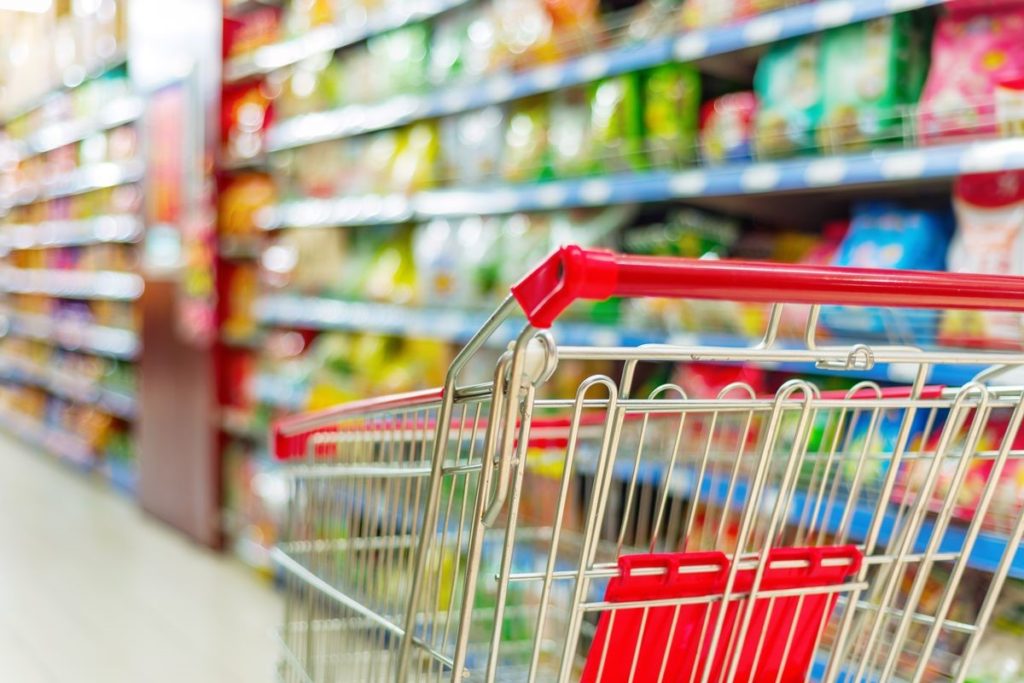By Patrick Ovuche
About eight years ago, we wrote an article on the rise of E-commerce in Nigeria. Since then, there has been a significant improvement in developing the infrastructures (Internet access, smartphone users, payment gateways, chatbots, and last-mile delivery) necessary for enabling e-commerce growth. As a result, e-commerce will continue to grow even after Covid-19 subsides, which could mean new digital opportunities for fast-moving consumer goods (FMCG) brands.
For brands where loyalty, trust, and advocacy have been developed over many years, the future looks bright. These legacy brands are well-positioned to provide security and convenience to their loyal audience in a period of monumental change. Social distancing rules has understandably reduced footfalls in supermarkets and in-stores that are usually characterized by long queues stretching around car parks. As a result, web-enabled purchases have sharply risen as online shopping provides safety, simplicity, and speed. Consequently, the purchase of groceries (as well as bulk buying of food and household items) online has become a long-term alternative to traditional shopping. Companies like Nestle, Unilever, and Heinz are reaching out directly and encouraging consumers to shop direct, without compromising their existing distributor networks.
In Africa, FMCG brands are yet to tap into the full potentials of e-commerce platform solutions largely because owning e-commerce software has additional layers of costs that can hurt their unit economics compared to wholesale relationships with distributors and online retailers. For instance, the sheer nature of consumer packaged goods (CPG) being consumed quickly and priced at a relatively low level is counterintuitive to absorb additional direct or indirect cost layers. Consequently, FMCG brands selling on third-party marketplaces have to sacrifice their margins while having limited control over the buyer’s journey and lifecycle, which could mean diminished sales and customer lifetime value over time.
Global FMCG brands are increasingly realizing the importance of setting up proprietary online storefronts to build closer relationships with their end consumers and improve margins. The online revenue channel is proving to be worthwhile in establishing a direct channel with consumers, improving conversion rates, increasing brand awareness and customer lifetime value. Customers want to be able to buy online and experience speed and convenience as they interact with your brand online. As African nations continue to gear up for the implementation of AfCFTA, FMCG brands in Africa can invest in effective, flexible, and scalable e-commerce platforms to boost intra-African trade significantly.
There are a variety of tactics currently being deployed by consumer brands globally to own their online customer data, measure online traffic as it correlates with an increase in online sales and social media followers. This can only be achieved with an efficient and scalable e-commerce platform. Here are three key insights that are transforming FMCG brands and their evolving relationship with the consumers.
Investment in e-commerce platform: FMCG brands are turning to software-as-a-service (SaaS) e-commerce platform providers to launch and scale their online storefronts. Through this model, brands can have access to leading e-commerce technology and deep e-commerce domain expertise. Using a SaaS e-commerce platform can also reduce the time to market (TTM) and mitigates the overwhelming cost of hiring a diverse IT team to develop and manage the platform. A typical CaaS platform should be;
- Easy to consume
- PCI and security compliant
- Low-cost of ownership
- Standardized features
- Seamless integration into ERP and social media channels
Having an effective e-commerce storefront can empower brands with direct access to rich consumer data. A world often protected by retail POS systems and often inaccessible, can be made available. FMCG brands can now, better understand buying habits, customer experience, and how best to improve their products and connect better with consumers across all online channels.
Direct engagement with consumers through doorstep delivery: This completes the supply chain and provides consumers with a complete end-to-end buying experience all managed by the brands themselves. An example of this is PepsiCo, which launched pantryshop.com so their customers could purchase directly and provide doorstep delivery. Meanwhile, some brands are converting their social media accounts to online stores, thereby ditching the need of selling through a website.
Subscription business model: Though unit economics might be skewed for CPG product offerings, an easy fix is to increase pack sizes or bundle products and offer to customers on a subscription-based model. Subscriptions are convenient, taking away the hassle of reordering needed products in a timely fashion. This can offers brands more stable and predictable revenue, coupled with an avenue for learning more about their consumers over time. Brands like Huron and Lola are actively using a subscription-based model to drive customer retention and loyalty.
The e-commerce industry in Africa will continue to experience growth. It is important for brands to gain a competitive edge by harnessing the potentials of reliable commerce tools to succeed in their online journey. As trends in consumer online behavior evolve, FMCG brands in Africa should strive for convenience and connect better with their consumers across all touchpoints.




